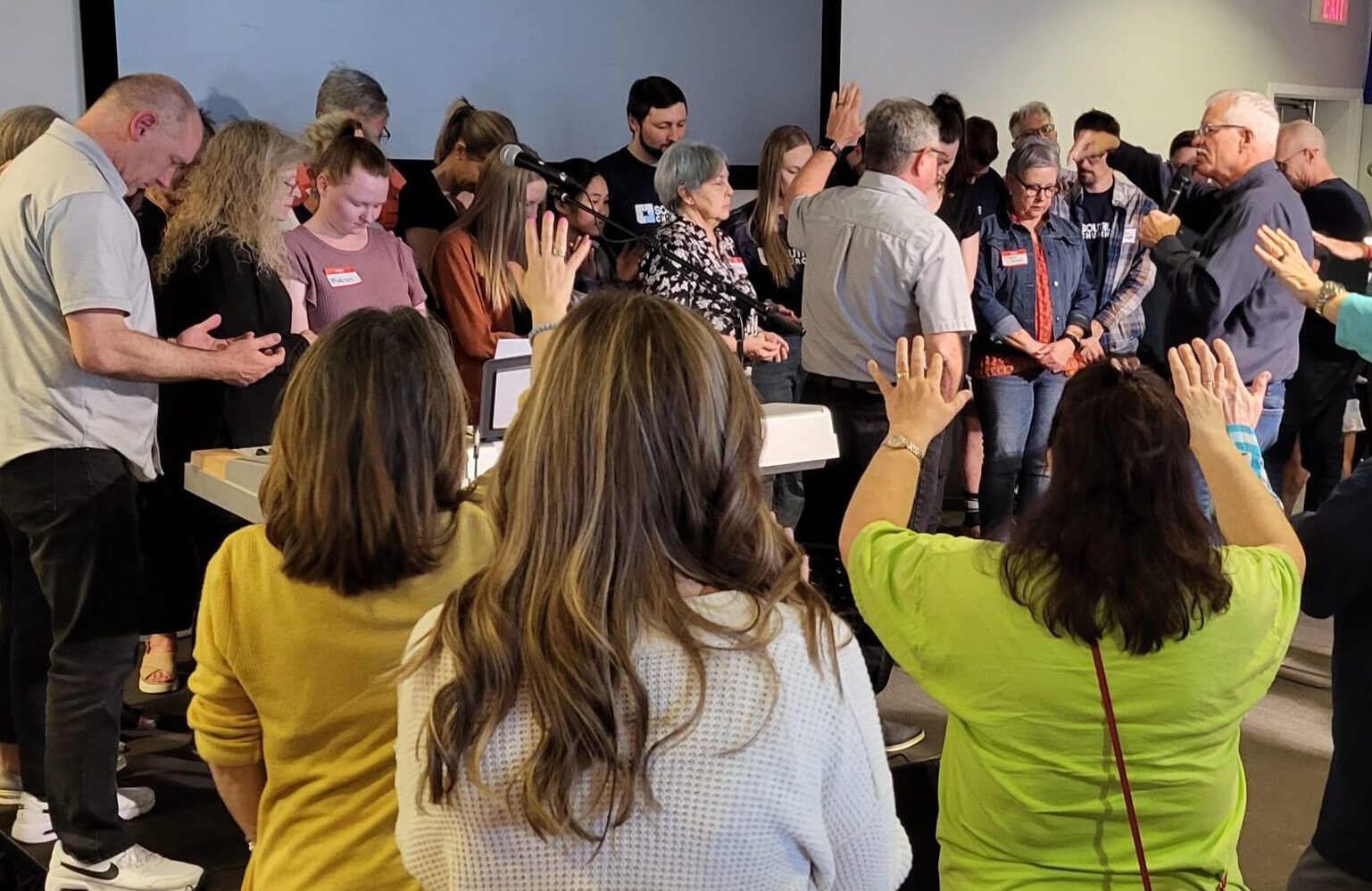 The world today is so full of conflict that it appears to be an inescapable part of human life. How we respond to the hostilities around us and seek peace is an important element of the Christian life. As Mennonite Brethren we earnestly seek wisdom from the Bible to address these situations, however it is important to remember first that conflict was not a part of God’s original intent. When God created the world He intended for human beings to live together in harmony. This deep sense of peace, or shalom, characterized human relationships with God, with each other, with the created order, and even our understandings of ourselves. Adam and Eve lived without shame, guilt, or conflict, enjoying perfect fellowship in all their relationships. When they subsequently fell into sin and disobeyed God the consequences of their choices involved a loss of that original state of peace. The author of Genesis graphically illustrates this loss in the following chapters as stories of conflict, violence, abuse of power, murder, and hatred quickly come to dominate the state of humanity.
The world today is so full of conflict that it appears to be an inescapable part of human life. How we respond to the hostilities around us and seek peace is an important element of the Christian life. As Mennonite Brethren we earnestly seek wisdom from the Bible to address these situations, however it is important to remember first that conflict was not a part of God’s original intent. When God created the world He intended for human beings to live together in harmony. This deep sense of peace, or shalom, characterized human relationships with God, with each other, with the created order, and even our understandings of ourselves. Adam and Eve lived without shame, guilt, or conflict, enjoying perfect fellowship in all their relationships. When they subsequently fell into sin and disobeyed God the consequences of their choices involved a loss of that original state of peace. The author of Genesis graphically illustrates this loss in the following chapters as stories of conflict, violence, abuse of power, murder, and hatred quickly come to dominate the state of humanity.
Peace at the Heart of the Gospel
The rest of the story of the Bible explains God’s plan to restore His original vision for our relationships. Throughout the Bible we see God vigorously at work redeeming what was lost. The Good News of Scripture is that our alienation from God and from each other can be healed. This redeeming work of God reaches its fullest expression in the life and teachings of Jesus Christ. Jesus taught us to be peacemakers with each other, and his death on the cross brought us into peace with God. The restoration of shalom in all our relationships is at the heart of the message of the gospel.
People of Peace
As followers of Jesus, then, we seek to be people of peace. We strive to live out the gospel to its fullest, restoring shalom to every aspect of life–spiritual, physical, social, and psychological. We nurture our personal relationship with our Creator, responding to the grace God freely gives us by living in faith and holiness. Wherever conflicts arise we seek to be agents of peace who actively work for genuine reconciliation. We also minister holistically to people, healing those who suffer physically and psychologically. This commitment to peacemaking does not have any limits for us but extends to all contexts in our lives, including family, friends, work places, our nation, global issues and even our enemies. Our new life in Christ compels us to live in a way that testifies to our world about a beautiful, healthy alternative to the brokenness, alienation, sin and guilt that characterize life apart from God.
Responding to Conflict
Although we strive to be peacemakers in all we do, our world is still saturated with violations of shalom. As Christians we are not immune from being involved in conflict and hostility of many kinds. We often face betrayal by coworkers, anger in our families, antagonism among friends and disillusionment in our churches. Hurt, grief and resentment in the midst of these situations can create a deep desire for retaliation or unhealthy withdrawal. Jesus teaches that our responses to frustration in our relationships should not involve revenge or escalations of conflict, but we should actively seek the kind of reconciliation that strengthens our marriages, unifies our churches, empowers our witness to the gospel among friends and serves as salt and light in our world. The command to love our enemies is not merely an abstract idea, but calls us to concrete acts of forgiveness and redemption. This approach is not just a superficial glossing over of deeply rooted issues, but calls us to serious reflection and conversation with the people in our lives about what causes conflict and how we can move beyond them in a healthy way that promotes lasting peace.
Redemptive responses to broken relationships apply not just on a personal level but also when larger social conflicts are involved. In seeking to be devoted followers of Jesus, Mennonite Brethren believe we are called to assume roles that seek to heal society rather than contribute to cycles of hostility and antagonism. Historically this has meant that we do not serve as combatants during times of war but choose alternative forms of service. Some Mennonites believe that certain carefully considered applications of violence are justified when they work redemptively to bring peace. In all cases, however, we agree that our actions in the midst of social conflict should make restoration of peace a top priority.
A New Way of Life
The gospel of peace urges us to be the hands and feet of Christ to our world. Mennonite Brethren seek to demonstrate the love of Jesus by living out a testimony to the power of the gospel to heal. We therefore commit ourselves to be agents of peace by inviting people to a relationship with God the Father, by establishing social institutions and programs that promote acts of love for those struggling with brokenness and by responding to our enemies with love.
Genesis 1-3, 6:5-6; Matthew 5:13-16, 5:38-48; Luke 4:18-19; John 10:10; Romans 5:1-2, 12:14-21; Revelation 21-22
Published under the sponsorship of the USMB Board of Faith and Life, 2016. For additional copies, contact U.S. Conference, 7348 W. 21st Suite 115, Wichita, KS 67205. Phone: 1-800-257-0515.










